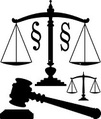CHAPTER 7 for an individual involves the elimination of unsecured debt (credit cards, medical bills, repos, deficiencys, judgments, etc..) while allowing the individual to keep most of the property he or she owns. The house and cars may be kept if the individual wants to continue to pay the loans or the person may choose to walk away from that "upside down" house or car.
Qualification To qualify to file Chapter 7 we need the information on the document list and need to complete the "means test" . Click here to obtain the document list. Once the test is passed you may file chapter 7.
The attorney will list all your assets including your bank accounts, cars, household contents, retirement accounts and real estate. The attorney will then indicate which of your assets are exempt. In most cases all of a person's property is exempt. If you have more property than the allowable exemptions you have certain options. You may chose to pay money to the court to "buy back" the amount you are over on your exemptions, or you may choose to surrender the property to the Court.
Chapter 7 Benefits: Quick Conclusion- After the case is filed, the Meeting of Creditors, the only hearing in most Chapter 7 cases, takes place in 30 days. The Discharge which is the document from the Court which orders the forgiveness of debt is normally issued 60 days after the meeting of creditors. Because the process is simpler, the fees are lower than in other cases. Stops Litigation - A Bankruptcy filing stops most litigation including foreclosures and garnishments. Fresh Start - After the Discharge, you start over without the debt which caused numerous problems in your life.


